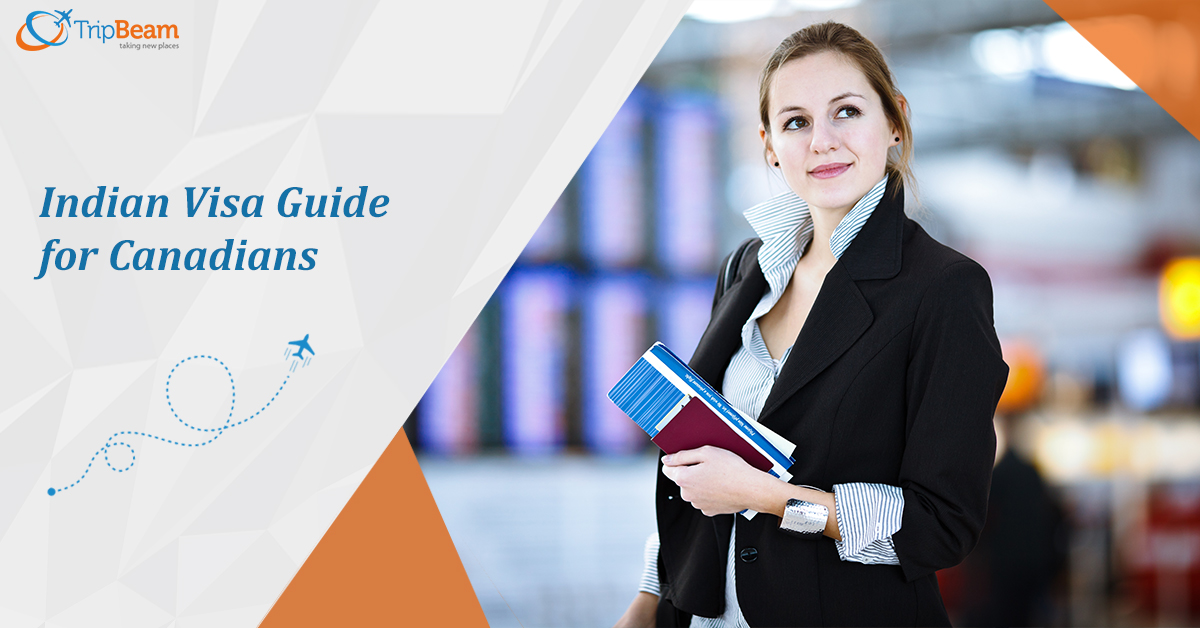

Millions of passengers visit India each day. A lot of them travel from Canada for leisure, business, and other pursuits. It is not possible without a key document called a visa.
Granted by territory, it dictates the entry, stays, and exit of a foreigner. Citizens of nearly all nations need a visa to visit India.
Therefore, if you are to board flights to India, read below.
This article will serve as a guide for everything that you must know about Indian Visa. It will make the cumbersome task easier and convenient for you.
Let’s start with a common question:
Yes, Canadian citizens and people traveling from Canada require a visa to enter India. Also, note that India travel visa is valid from the date of issue and not from the day you enter the country.
So, it is wise to plan your travel in advance and accordingly.
Further, there are two broad categories for Indian visas for Canadians. These are E visa and sticker visa.
This type of visa is applied online and has a validity of up to 180 days. Hence, it is a short-term visa.
Also, this visa type is non-extendable. A person must travel to India within 120 days from the time the visa is granted.
Moreover, E-Visas have replaced the Indian visa on arrival.
Currently, it is the fastest and most convenient way for Canadian passport holders to get Visa for India.
E visa is an ideal choice for those looking to take a short business, medical, or a leisure trip to India.
Further, it is helpful for those passengers that want to visit the country on an urgent basis. You can apply for the visa minimum of 4 days before leaving Canada.
The Indian E-visa fees is about USD 50 apart from the admin fee. Also, the charge is non-refundable.
E-visa for India has three subcategories. These are e-Medical Visa, e-Tourist visas, and e-Business Visa. Also, triple entry is allowed to e-medical visa holders.
The time taken depends on the visa subtypes and the processing option you choose. Take a look at the following
There is a lot of paperwork required to obtain the E-visa. It is important that you read everything carefully and recheck every detail you submit.
If your application for E-visa has mistakes or errors, it may be rejected. You would have to repeat the whole process.
Here are all the documents you need to apply E-visa for India
1. Passport:
A copy of the first and last page of your passport. You can scan it.
2. Photo:
Latest photograph of yourself with a white background. The image format must be JPEG.
There are size restrictions. It must be between 10 KB to 300 KB. Further, the height and width of the photo must be equal.
The minimum width and height dimensions are 350 pixels each. On the other hand, the maximum height and width dimensions must be 1000 pixels.
Further, you may also require details about your parents’ passport, spouse, the port of entry in India, and your work-related information.
It is crucial to adhere to the specifications and file formats of the documents. If there are any variations, your application will be rejected.
To be sure, you can hire the services of a visa agent.
You can send your photos, and they will edit them to meet the specifications.
To apply a visa to India by yourself, you need to log on to the Indian government site https://indianvisaonline.gov.in/.
Next, you will get your visa via email. Always carry a hard copy or a printout of the visa with you in India.
As soon as you land in India, the visa will be affixed to your passport. Fill and recheck all the details carefully.
E-visa is neither convertible nor extendable. You can only apply for 2 E-visas per year. You do not have to send your passport anywhere, as the process is entirely online.
This kind of visa requires you to send your passport to the authorities.
It is generally a longer and more complicated process than obtaining an E-visa.
Generally speaking, you need more than just 1 and 2 months to explore India properly. For this, you may need a sticker visas for India.
The Indian visa application process is outsourced to BLS International Services.
Going by the trend, most Canadian passengers spend 3 to 6 months. An Indian tourist visa works just fine for that.
You get access to single, double, as well as multiple entries. However, this type of visa is inconvertible and non-extendable.
But how much does a visa cost? Well, an important thing to note is that the cost of processing the visa for six months or 12 months is the same.
Therefore, you might as well just apply for 12 months.
However, even if you obtain a visa for 12 months, you cannot spend more than 180 days in India at a stretch.
Also, if for just a day, you would have to leave the country and re-enter.
Further, foreigners will only get a visa if they do not have a residence in India.
Also, the purpose of the visit must be a casual visit, sightseeing or recreation, and so on. No other activity is allowed on a tourist visa.
There are other visas for other purposes. For instance, if you want to pursue business in India, you have to obtain an Indian business visa.
Take a quick look at the types of visas and the purposes that it suits
If you are traveling to India for business pursuits, you must file for this type of visa. It is valid for a year or more with multiple entries.
If you want to visit the country for an international conference, this visa suits you.
Delegates invited for a conference, seminar, or workshop, and so on must apply for a conference visa. The visa is valid for three months and allows a single entry.
The Indian Embassy process diplomatic and official passports for a diplomatic visa. There is no processing fee or service charge for this type of visa.
A person suitable for an employment visa must be an employee or a paid intern for an Indian company.
Also, people traveling for NGO volunteering work seek such a visa. The duration varies and may be extended up to 5 years.
As the name suggests, such a visa is granted in case of an emergency such as illness, death, and so on.
Such type of visa is perfect for a passenger of Indian origin.
Professional journalists and photographers can obtain such visas. You can stay for up to 3 months with this type of visa.
If you seek medical help or treatment from a specialized Indian center or institution, you need a medical visa.
The visa is usually valid up to a year or till the treatment is ongoing, whichever comes first. A maximum of 3 entries per year is permitted.
If you are to travel to India for religious purposes, a Missionaries Visa is what you need. It carries single entry and may take up to 3 months to process.
You can obtain a research visa if you are a researcher, research professor, participant, or scholar attending research conferences, workshops, or seminars.
It is mandatory to apply for such a visa at least six months before your scheduled departure.
Students that are attending legit courses with recognized Indian institutions can apply for multiple-visit Student Visa. It is valid for the duration of the class.
This type of visa is only granted to enable visa holders to pass through or travel through India to reach their ultimate destination. You cannot change the purpose of the visa.
if the passport that you are holding has expired, however, the visa is still valid, you can travel to India using both the older and newer passport.
It is necessary, though, to transfer the visa to your new passport.
Recently, the Indian government introduced a ten-year multiple entry visa for Canadians. The maximum limit earlier was five years. However, the restriction on the stay in one go remains the same, i.e., 180 days.
Cost of a tourist visa for India that has a validity of 1-year costs CDN $153 for all Canadian passport holders.
However, when you combine the processing fees and BLS International fee, the total amount increases to about CDN $164.40.
Finally, there are additional costs, such as postage and photos. Such costs vary from region to region.
On the other hand, the ten-year visa cost for India is CDN $202, excluding the processing fee.
So, that covers everything Canadians must know for getting a visa for India. For any queries,
you can log on to official government websites. It is advised that you seek the professional help of a visa agent to save yourself from all the cumbersome processes and intricacies. Have a seamless travel experience in India!
Tell us more details to help better






| Sun | Mon | Tue | Wed | Thu | Fri | Sat |
|---|---|---|---|---|---|---|
30 | 31 | 1 | 2 | 3 | 4 | 5 |
6 | 7 | 8 | 9 | 10 | 11 | 12 |
13 | 14 | 15 | 16 | 17 | 18 | 19 |
20 | 21 | 22 | 23 | 24 | 25 | 26 |
27 | 28 | 29 | 30 | 1 | 2 | 3 |
| Sun | Mon | Tue | Wed | Thu | Fri | Sat |
|---|---|---|---|---|---|---|
30 | 31 | 1 | 2 | 3 | 4 | 5 |
6 | 7 | 8 | 9 | 10 | 11 | 12 |
13 | 14 | 15 | 16 | 17 | 18 | 19 |
20 | 21 | 22 | 23 | 24 | 25 | 26 |
27 | 28 | 29 | 30 | 1 | 2 | 3 |